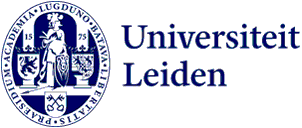Lecture
Casimir Colloquium- Children’s Unequal Selves: A Developmental-Psychological Perspective on Achievement Inequality
- Date
- Thursday 20 June 2024
- Time
- Address
-
FSW building
Wassenaarseweg 52
2333 AK Leiden - Room
- 5A42
Achievement inequality is a defining problem of our time. Around the world, children from low socioeconomic status (SES) backgrounds have lower academic achievement than children from high-SES backgrounds, even when their ability is the same. This represents a tremendous loss of potential and perpetuates harm into adulthood.
In this talk, Eddie Brummelman will use insights from developmental psychology to better understand the origins of achievement inequality. He will show that there are pervasive stereotypes about the academic abilities of children from low-SES backgrounds. These stereotypes may lead teachers to provide children from low-SES backgrounds with discouraging feedback, including feedback that is superficially positive (e.g., inflated praise).
From the moment children enter formal schooling, these messages may become etched into their developing self-views: Over time, children from low-SES backgrounds come to see themselves as less intelligent, less able to grow their intelligence, less deserving, and less worthy, independent of their actual abilities and achievements.
These negative self-views may introduce psychological barriers that undermine the academic achievement of children from low-SES backgrounds, thereby reinforcing achievement inequality. Eddie Brummelman will discuss how we can change contexts—rather than individuals—to enable children to reach their full potential.
About the Casimir Colloguia
Under the name Casimir Colloquia, the Institute of Education and Child Studies organises lectures 3 to 4 times a year, to which national and international speakers will be invited. They will address a topic that is preferably relevant to the widest possible audience within our institute.
For the first colloquium, Eddie Brummelman has been invited. He is an Associate Professor at the University of Amsterdam, where he leads KiDLAB. KiDLAB studies the developing self—the nature, origins, and consequences of children’s self-views.
He earned his PhD at Utrecht University, did his postdoc at Stanford University, and then joined the University of Amsterdam. He is the chair of The Young Academy (De Jonge Akademie) of the Royal Netherlands Academy of Arts and Sciences (KNAW).
